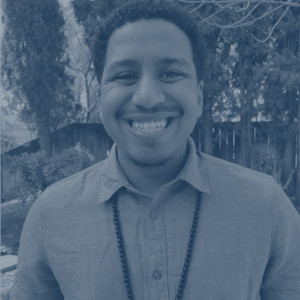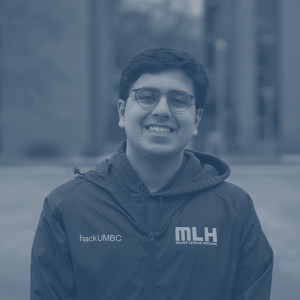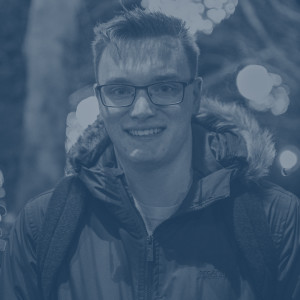TJ Horner, 20
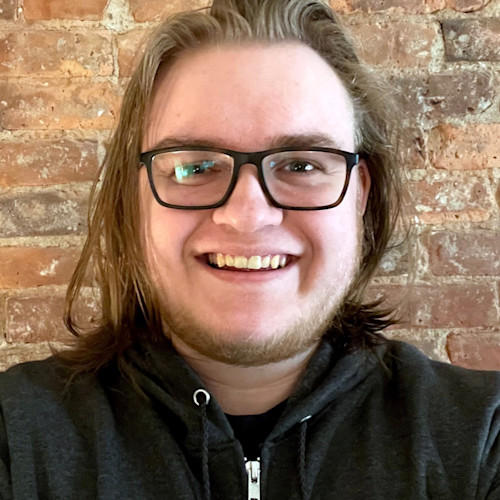
TJ found their passion for tech at the age of 8 when they were on YouTube following a tutorial action script (FlashPlayer) and it showed them how to turn a cursor in a flash game into anything. They decided to turn theirs into their initials. What started out small grew into a lifelong passion.
It wasn’t until 2014 that TJ found the hacker community thanks to Facebook, where they joined two groups: Hackathon Hackers and HS Hackers. Similarly to TJ, these groups were also just getting their start, composed of a relatively small usership.
Even then, TJ was ahead of the curve, HS Hackers, as the name implies, was a group for high school hackers once limited to attendees of PennApps, then widened to anyone in high school. TJ, however, found a way to be admitted as a middle schooler, where they met lots of great friends that they still hold dear to this day.
These groups gave TJ a sense of self-confidence and support, a rare find in most online communities. With the help of other members, they were able to comfortably ask for feedback and accept constructive criticism. Beyond the positive social ramifications of joining these communities, they’ve also led TJ to events that have changed their life just as much.
TJ went to a good high school, but it was not known for having a great CS program. During their time there, they started the robotics team during their sophomore year and helped them with their branding and social media presence. Wanting to continue to create the community they wish was present, TJ also created the computer science club. As a hacker who had found resources outside of the school, they wanted to give back.
It was through their work with the computer science teacher, Mr. O’Neill, that TJ’s work had a significant impact. TJ was a teacher’s assistant during their senior year and helped to write code to help organize and manage all of the 3D printing jobs handed in by the students. Over a couple of weeks, they had written a prototype using Node.js. The school started using it and it was put up on GitHub.
A year later, they were contacted by MakerBot, the company that made the 3D printers TJ’s school used. They said that they had seen their project and wanted to discuss working with them. After interviewing with them, TJ was given an offer. Prior to this, TJ had been debating whether a traditional university education was the right path for them and had been applying to jobs. Upon receiving the offer and with the support of their dad, TJ decided to move to New York City and work for them. During their year at MakerBot, TJ worked on internal login systems and the company’s web properties, Thingiverse and MakerBot Cloud. TJ now works at Twosense as a software engineer.
In recent years, TJ’s attendance at hackathons has been as a mentor, but it didn’t start out that way. TJ got their start by participating in multiple hackathons, one of which brought to life their favorite project, HearTempo — an app that read the heart rate monitored by one’s watch and changed the BPM of any song in real-time to regulate one’s heart rate.
It began with the help of a friend who had recently interned at NIH, where he researched Laser Doppler Flowmetry. After a bit of filling in, TJ was left inspired by the knowledge that the BPM of any song can change your heart rate. Using TJ's new Android Wear watch, the team was able to do some practical experimenting.
CodeDay was another event that has left a lasting impression on TJ ever since it entered their radar in 2014. Admittedly, their first CodeDay was a bit lackluster after getting sick halfway through. But TJ’s work was still recognized by the regional manager of the event, who reached out and asked if they’d like to organize the next one. TJ’s been involved with CodeDay ever since where they’ve run the gamut of positions, including being inducted as a board member.
Every new position has granted TJ a new perspective — as an attendee, they’ve learned new technical skills that they’re able to implement in their career as a software engineer; as an organizer, they learned how to work better in a team setting while actively engaging with complex logistical problems and as a mentor, they narrowed their scope to individual attendees in need of the same help that they once needed through pair programming, a common practice in TJ’s field.
It’s also where TJ learned the importance of being an organizer. At CodeDay, they’re able to inspire students that may not have had the resources available to break into computer science and inspire more careers in the industry. It’s important to TJ that they replicate the supportive, beginner-friendly environment they experienced when they joined that very first Facebook group as a kid, which means truly believing that there are no wrong questions and ensuring that CodeDay fosters healthy competition that you may not find in your typical hackathon.
It’s incredibly gratifying for TJ to feel like they’re reciprocating the inclusive environment that they’ve spent years receiving from their peers. Hearing that an attendee feels supported enough by CodeDay to pursue a career in the field of computer science is the most fulfilling part for TJ
TJ credits their success today to their community for fostering their passion at such a young age. Without them, TJ wouldn’t have been pushed to learn by participating without the fear of being judged.
After a long-standing history with CodeDay, TJ was given an internship with the group, opening up the floor for tons of practical experience with projects and after years of dedicated work, MakerBot, a company in the 3D printing space, noticed their hard work. They landed a position with the organization straight out of high school as a software engineer — a testament to the impact of the hacker community, which TJ will never take for granted.
Quick Facts
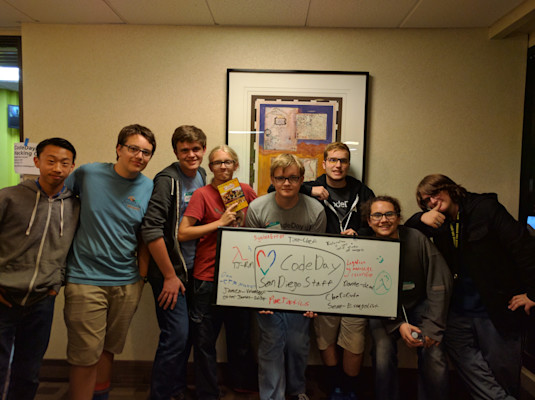
TJ Horner, 20

TJ found their passion for tech at the age of 8 when they were on YouTube following a tutorial action script (FlashPlayer) and it showed them how to turn a cursor in a flash game into anything. They decided to turn theirs into their initials. What started out small grew into a lifelong passion.
It wasn’t until 2014 that TJ found the hacker community thanks to Facebook, where they joined two groups: Hackathon Hackers and HS Hackers. Similarly to TJ, these groups were also just getting their start, composed of a relatively small usership.
Even then, TJ was ahead of the curve, HS Hackers, as the name implies, was a group for high school hackers once limited to attendees of PennApps, then widened to anyone in high school. TJ, however, found a way to be admitted as a middle schooler, where they met lots of great friends that they still hold dear to this day.
These groups gave TJ a sense of self-confidence and support, a rare find in most online communities. With the help of other members, they were able to comfortably ask for feedback and accept constructive criticism. Beyond the positive social ramifications of joining these communities, they’ve also led TJ to events that have changed their life just as much.
TJ went to a good high school, but it was not known for having a great CS program. During their time there, they started the robotics team during their sophomore year and helped them with their branding and social media presence. Wanting to continue to create the community they wish was present, TJ also created the computer science club. As a hacker who had found resources outside of the school, they wanted to give back.
It was through their work with the computer science teacher, Mr. O’Neill, that TJ’s work had a significant impact. TJ was a teacher’s assistant during their senior year and helped to write code to help organize and manage all of the 3D printing jobs handed in by the students. Over a couple of weeks, they had written a prototype using Node.js. The school started using it and it was put up on GitHub.
A year later, they were contacted by MakerBot, the company that made the 3D printers TJ’s school used. They said that they had seen their project and wanted to discuss working with them. After interviewing with them, TJ was given an offer. Prior to this, TJ had been debating whether a traditional university education was the right path for them and had been applying to jobs. Upon receiving the offer and with the support of their dad, TJ decided to move to New York City and work for them. During their year at MakerBot, TJ worked on internal login systems and the company’s web properties, Thingiverse and MakerBot Cloud. TJ now works at Twosense as a software engineer.
In recent years, TJ’s attendance at hackathons has been as a mentor, but it didn’t start out that way. TJ got their start by participating in multiple hackathons, one of which brought to life their favorite project, HearTempo — an app that read the heart rate monitored by one’s watch and changed the BPM of any song in real-time to regulate one’s heart rate.
It began with the help of a friend who had recently interned at NIH, where he researched Laser Doppler Flowmetry. After a bit of filling in, TJ was left inspired by the knowledge that the BPM of any song can change your heart rate. Using TJ's new Android Wear watch, the team was able to do some practical experimenting.
CodeDay was another event that has left a lasting impression on TJ ever since it entered their radar in 2014. Admittedly, their first CodeDay was a bit lackluster after getting sick halfway through. But TJ’s work was still recognized by the regional manager of the event, who reached out and asked if they’d like to organize the next one. TJ’s been involved with CodeDay ever since where they’ve run the gamut of positions, including being inducted as a board member.
Every new position has granted TJ a new perspective — as an attendee, they’ve learned new technical skills that they’re able to implement in their career as a software engineer; as an organizer, they learned how to work better in a team setting while actively engaging with complex logistical problems and as a mentor, they narrowed their scope to individual attendees in need of the same help that they once needed through pair programming, a common practice in TJ’s field.
It’s also where TJ learned the importance of being an organizer. At CodeDay, they’re able to inspire students that may not have had the resources available to break into computer science and inspire more careers in the industry. It’s important to TJ that they replicate the supportive, beginner-friendly environment they experienced when they joined that very first Facebook group as a kid, which means truly believing that there are no wrong questions and ensuring that CodeDay fosters healthy competition that you may not find in your typical hackathon.
It’s incredibly gratifying for TJ to feel like they’re reciprocating the inclusive environment that they’ve spent years receiving from their peers. Hearing that an attendee feels supported enough by CodeDay to pursue a career in the field of computer science is the most fulfilling part for TJ
TJ credits their success today to their community for fostering their passion at such a young age. Without them, TJ wouldn’t have been pushed to learn by participating without the fear of being judged.
After a long-standing history with CodeDay, TJ was given an internship with the group, opening up the floor for tons of practical experience with projects and after years of dedicated work, MakerBot, a company in the 3D printing space, noticed their hard work. They landed a position with the organization straight out of high school as a software engineer — a testament to the impact of the hacker community, which TJ will never take for granted.
Quick Facts


